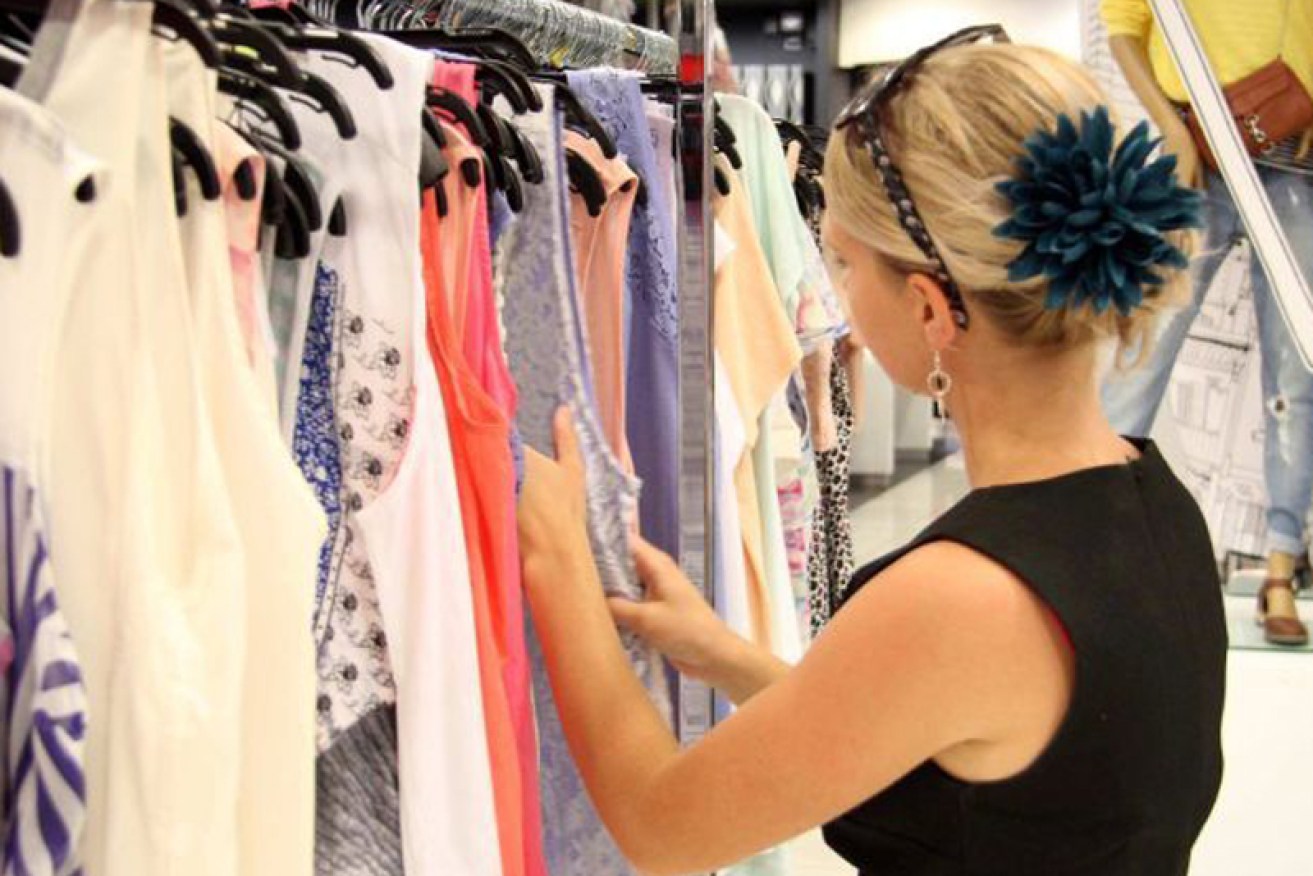The five signs to tell if you are a shopaholic

Shopping is so ingrained in modern life culture that terms such as “shopaholic” and “shop until you drop” are often used jokingly.
But according to experts, around six per cent of the population have a compulsive shopping disorder, or oniomania.
And here’s the kicker: it is every bit as serious as other addictive behaviours.
• The trick employers use to pay you less
• Dear PM, stop robbing young Aussies of jobs
• How predatory banks are hooking credit cards customers
Sydney-based counsellor Michelle Laving, who specialises in shopping addiction, describes it as an “ongoing engagement in shopping despite negative consequences such as relationship stress, financial difficulties and legal issues”.
While women make up the majority of those who seek help, she said, men also suffer from the disorder. But before you can get help, you need to know that you’ve got it.
If you love shopping a little too much, these five signs could help you understand if you’ve got a problem.
1. Accumulating debt

Avoid spending money that you don’t have. Photo: ABC
The occasional retail therapy session can actually be good for you, but shopping becomes a problem when it leads to financial stress and ongoing credit card debt.
“People with shopping addictions will continue to accumulate debt and spend a lot of time juggling accounts or bills to accommodate their spending habits”, Ms Laving said.
Madeleine Klaic, a self-confessed shopaholic, said she had racked up “quite a bit of debt” spending huge amounts of money on clothes and beauty products.
“I could drop $1000 to $2000 in a day, it just depends on if I see stuff that I like. I don’t really have an off button,” she said.
The 22-year-old is now making a “conscious effort to stop” in order to save money to buy her own apartment.
2. Hiding the problem

Dishonesty is a sure fire sign of having a real problem.
To avoid criticism from others, shopaholics will often hide their habits or lie about how much something actually cost.
“They will go to great lengths to keep their spending and shopping a secret from people who are close to them,” Ms Laving said.
“This can include lying to cover up their purchases or stealing from loved ones.”
Compulsive shoppers may also open multiple credit card accounts or take a second job to fund their spending habits, giving the illusion that they have things under control.
Ms Klaic said she realised her spending was a problem when she “couldn’t fit anything into my tiny apartment”.
3. Relationship breakdown

If things are getting tough with loved ones, have you considered the role of your shopping? Photo: Getty
As with other addictive behaviours, compulsive spending can have negative consequences on a person’s family life and relationships.
Mental health experts say relationship stress can occur when a person spends excessive amounts of time shopping, covers up their behaviour with deception or begins to isolate themselves physically and emotionally from others.
“It can destroy relationships,” said Adam Szmerling, counsellor at Bayside Psychotherapy in Melbourne.
“If people feel out of control and associated feelings of depression or worthlessness, it’s always worth considering professional help.”
4. Compensating for negative feelings
“Regular over-shopping or spending is an attempt to manage feelings such as anger, sadness, loneliness and boredom,” Ms Laving said.

Isla Fisher could justify any purchase in ‘Confessions of a Shopaholic’. Photo: AAP
“There’s a spiritual emptiness. You can never have enough of what you don’t need.”
Researchers at San Francisco State University found a person with a shopping addiction is driven to spend because they are “hoping their purchases will lift their mood and transform them as a person”.
Associate Professor Ryan Howell said the 2013 study, published in the Journal of Economic Psychology, showed shopaholics tend to also have materialistic values.
Mr Szmerling noted that addiction usually occurs because of “underlying difficulties”.
“A binge shopping problem is constructed, I think, to answer a particular problem although it is unsuccessful because it leaves the person feeling a lot worse … you also have other health problems like depression, anxiety and low self-esteem,” he said.
5. Trying to stop but can’t

If you need to keep going again and again, there might be a bigger problem. Photo: AAP
Shopaholics may recognise they have a problem and will try to manage it, only to ultimately revert back to their old behaviour.
“Usually people will find it difficult to reduce or stop their over-shopping despite multiple attempts,” Ms Laving said.
Ms Laving recommends that people seek help from a financial expert as well as a professional counsellor to overcome their addiction.
“Firstly, one needs to acknowledge that their behaviour is problematic,” she said.
“Understand what your shopping triggers are, for example mood, relationship stress, need for status, and find alternative coping strategies in response to these triggers.
“When you are feeling a strong pull to over-shop, try to take a mindful pause by asking yourself, ‘Why am I here? Do I need this? How will I pay for it?'”
-ABC









